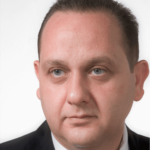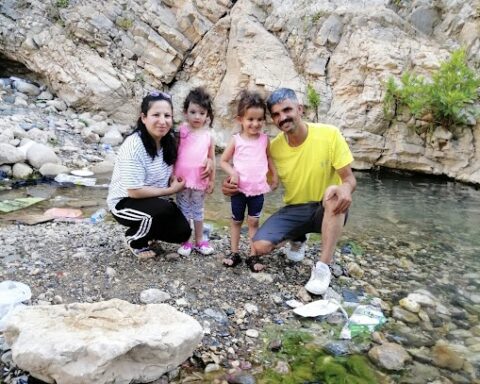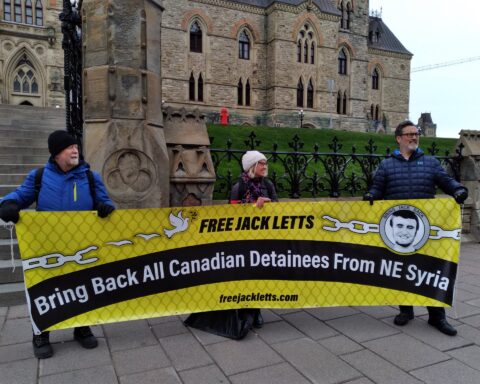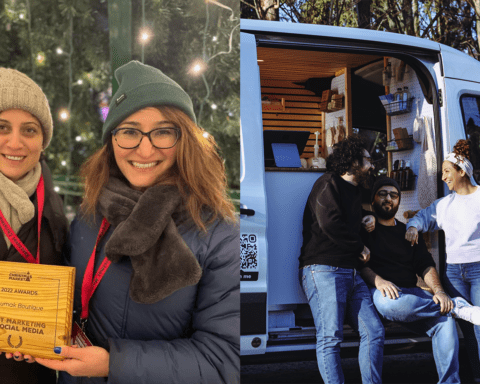It’s not too late for Canada to play a more pivotal role in the fight against Bashar Al Assad’s “killing machine” in Syria, according to a Syrian-Canadian who was in the running for the post of prime minister in the opposition Syrian National Coalition’s planned transitional government.
“Canada has provided more assistance to countries in far less distress than what Syria is going through for more than two years now. The Syrian people are frustrated at the extremely mediocre support from Canada for their revolution against the oppressive regime. Syrians also want to benefit from the Canadian experience in democracy, politics and economic progress,” said Osama Kadi, a former president and co-founder of the Syrian Canadian Council.
Kadi, in an exclusive interview with New Canadian Media in Dubai, said the Canadian example of governance offers a role model for a post-Assad Syria, where, it is hoped, human rights and the rule of law will be prime drivers. The conflict, in which about 70,000 people have been reported killed and millions uprooted from their homes, is now in its third year and threatens to spill over into an ever-volatile region.
“Canada can definitely do more in terms of relief effort, political involvement and training of Syrians who will contribute to building New Syria. It is never too late for Canada to restore its great image among Syrians and Arabs in general by making a serious and substantial proposition to genuinely help Syria now and after the demise of the current regime,” said Kadi.
Pessimistic about Geneva 2
Kadi was pessimistic on the prospects of fresh efforts to resolve the Syrian crisis in what is being dubbed as Geneva 2 after last year’s failed attempt in the Swiss city. Washington and Moscow had agreed earlier this month at meetings between U.S. Secretary of State John Kerry and Russian Foreign Minister Sergei Lavrov to hold the international conference on Syria in which representatives of both the opposition and the Syrian government are expected to participate. The conference is aimed at reaching an understanding on the creation of a fully empowered transitional government.
“The Syrian issue is too complicated. Things now are moving in the direction of negotiations between the opposition and the regime, due to mounting international pressure in recent months. I am not optimistic about Geneva 2 [expected to be held in June]. There are no signs whatsoever that the regime will ever change or make political concessions or serious economic changes, or rather alter the status quo in the structure of the military and the security apparatus,” said Kadi.
He explained “that no preparations for the negotiations were made, to create a lever for the talks … no cessation of attacks, no release of political prisoners. Geneva 2, I am afraid, could be a waste of time, if the killing machine is not stopped … just look at how many crimes were committed since the regime nodded to taking part in the conference.”
‘Syria Marshall plan’
On the financial front, Kadi, who worked as an economic consultant in Syria and in London, Ontario, warned that Syria could be approaching an economic catastrophe and a fiscal collapse in weeks, amid falling foreign-exchange reserves, rising expenditure and trade deficits, and the declining value of the currency.
“The Syrian pound could reach the SYP200/US$1 rate soon, and could even reach SYP250 or 300 by the end of June. Inflation is going through the roof, reaching 300 to 500 per cent for some goods and commodities. The country’s macro-economic fears are running high. Citizens are suffering under harsh economic conditions,” he said.
“Syria, even before the Arab Spring, was reeling under tough economic conditions. It ranked 48th position in the 2011 Failed States Index,” said Kadi, who is also involved with a project dubbed as the Syria Marshall plan by the Syrian Economic Task Force in cooperation with “Working Group for Economic Development & Reconstruction in Syria” (co-chaired by the governments of U.A.E. and Germany).
The Syrian opposition leader said a more realistic approach to the building of new Syria will be included in various studies being conducted by the Syrian Center for Political and Strategic Studies, a non-profit organization registered in Washington D.C., of which he is the president. “The studies, the result of five extended workshops, will be available to the public in about a fortnight … They include the restructuring of the security apparatus.” Recent reports estimated the cost of repairing the damage at U.S. $80 billion.
“I have never been a member of any political party,” the 44-year-old Syrian-Canadian underlined. His lack of political affiliation is seen as a strength in the Syrian opposition that has been beset by ideological differences. – New Canadian Media
(Hakam Kherallah is a veteran Toronto-based Arab Canadian journalist of Syrian descent)
Hakam Kherallah is a veteran Toronto-based Arab Canadian journalist of Syrian descent. He is a member of the NCM Collective.





